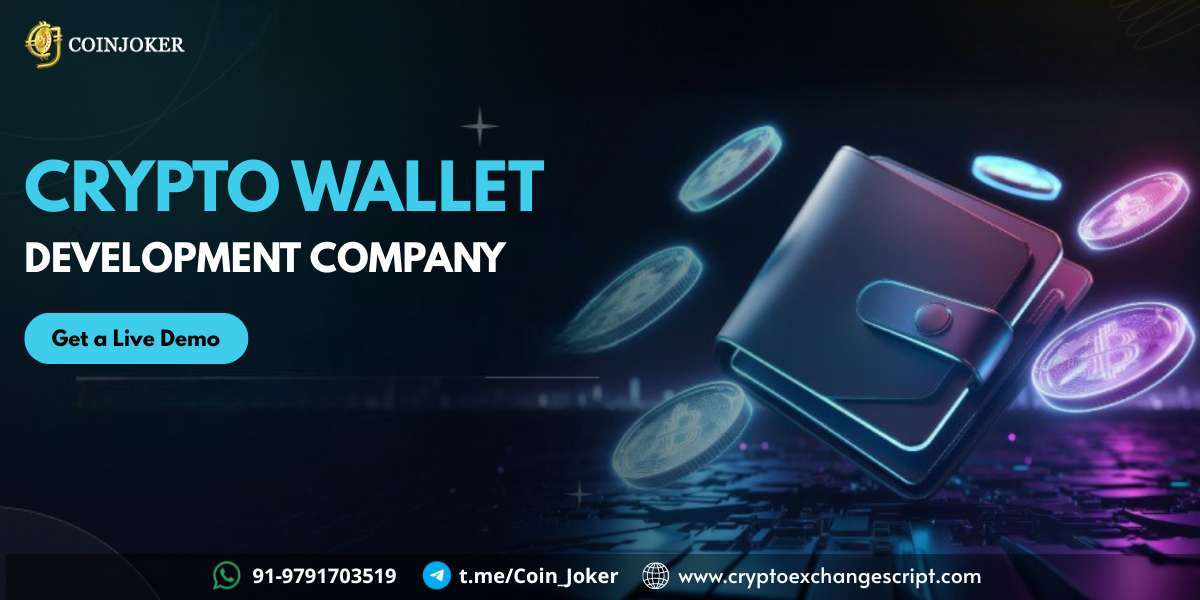In the rapidly evolving world of digital finance, crypto wallet development stands as a foundational pillar empowering users to interact seamlessly with decentralized ecosystems. As the cryptocurrency market matures and decentralized finance (DeFi) becomes more mainstream, the importance of secure, scalable, and user-centric crypto wallets continues to grow exponentially.
What is Crypto Wallet Development?
Crypto Wallet Development refers to the process of creating secure digital wallets that allow users to store, manage, and transfer cryptocurrencies. It involves integrating blockchain technology, encryption protocols, and user-friendly interfaces to enable seamless access to digital assets. With the growing demand for decentralized finance and digital transactions, Crypto Wallet Development plays a crucial role in empowering businesses and users to participate in the crypto ecosystem securely.
Key Components of Crypto Wallet Development
Multi-Currency Support
Today’s wallets need to handle a variety of cryptocurrencies and tokens, including ERC-20, BEP-20, and NFTs. This means they have to connect with several blockchain networks.
Private Key
When it comes to security, there’s no room for compromise. Wallets should encrypt private keys and keep seed phrases safe, utilizing secure enclaves or biometric authentication.
User-Friendly Interface
To take off, wallets must have an intuitive UI/UX that makes complex blockchain tasks—like swapping tokens, staking, and connecting to dApps—feel simple and straightforward.
Backup & Recovery
Having the option to recover wallets through seed phrases or backup solutions is crucial for safeguarding users against data loss or device issues.
Cross-Platform Compatibility
Wallet apps that work seamlessly on Android, iOS, and web browsers enhance accessibility and overall utility.
Blockchain Integration APIs
Wallets need to connect with various blockchains using APIs or SDKs to provide features like transaction history, balance checks, and real-time synchronization.
Smart Contract Interaction
DeFi wallets allow users to engage with decentralized apps (dApps) and protocols directly from the wallet interface.
Emerging Trends in Crypto Wallet Development
Crypto wallet development is not static—it evolves alongside innovations in Web3, DeFi, and blockchain infrastructure. Some of the top trends driving the next generation of wallets include:
Web3 Wallets & Browser Extensions
Wallets like MetaMask and Phantom allow users to interact with decentralized applications (dApps) directly in the browser. Custom Web3 wallets are becoming essential tools for DeFi users, NFT traders, and DAO members.
Multi-Sig Wallets
Multi-signature wallets require multiple approvals before executing a transaction. These are crucial for DAO treasuries, corporate crypto funds, and secure multi-party asset management.
Social Recovery Mechanisms
Advanced wallets are integrating social recovery, eliminating reliance on seed phrases by allowing trusted contacts to help recover access.
Integration with Layer 2 Scaling Solutions
To reduce gas fees and speed up transactions, wallets are integrating with Layer 2 networks like Optimism, Arbitrum, and zkSync.
AI and Biometric Security
Machine learning is being used to detect suspicious activity, while biometric access control adds an extra layer of security.
Wallet-as-a-Service (WaaS)
WaaS platforms provide ready-made crypto wallet infrastructure for startups and enterprises to quickly build and deploy blockchain solutions.
Challenges in Crypto Wallet Development
Security Threats
Wallets are major targets for phishing, key-logging, and man-in-the-middle attacks. To combat this, regular audits and top-notch encryption are a must.
Blockchain Interoperability
Each blockchain has its unique protocols. Achieving smooth interoperability demands a solid understanding of cross-chain development.
Mobile vs Web Optimization
Keeping functionality and security consistent across different devices can be quite a technical challenge.
Regulatory Compliance
With the spotlight on crypto worldwide, wallet providers must ensure they comply with KYC/AML and local regulations.
Why Choose Coinjoker for a Crypto Wallet Development Company?
Coinjoker provides cutting-edge solutions in crypto wallet development, delivering secure, scalable, and customizable wallets tailored to the demands of DeFi, NFTs, and Web3 ecosystems. With advanced features like multi-party computation, account abstraction, and cross-chain compatibility, Coinjoker ensures every wallet is built with top-tier security and user experience in mind. From white-label wallets to custom-built applications, Coinjoker provides everything needed to launch a future-ready crypto wallet that meets the expectations of today’s digital asset users.



